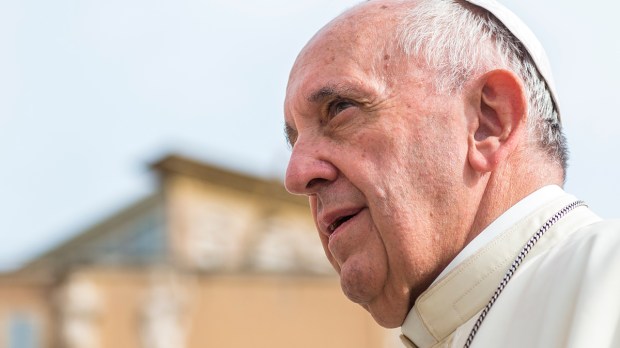I think if my book came out in 2014 and 2015, it would have had a bigger market. By 2016 and 2017, it seems many critics had already written off the Holy Father and no longer care What Pope Francis Really Said.
I wish they did. Francis’ critics serve a vital purpose when they stick to the facts and correct the pope’s extravagances from the context of Church teaching. The danger for critics at all times — in our personal, political and, yes, papal, relationships — is to put our opponent in a box, decide we understand where they are coming from, and stop listening to what they say.
The danger for critics is that we freak out.
The latest example: the furor over the Holy Father’s recent comments about religious vocations and “restorationist” orders. I was alarmed at the speed with which posters on Facebook decided they knew exactly what he meant, and felt free to denounce him to the world for it.
Pope Francis doesn’t like the wonderful, faithful religious orders that give us such hope, they fumed.
Here is what Crux reported Francis saying about vocations: “When they tell me that there is a congregation that draws so many vocations, I must confess that I worry,” he said. “The Spirit does not follow the logic of human success.”
He went on to say he worries about congregations of “soldiers who seem ready to do anything for the defense of faith and morality, and then some scandal emerges involving the founder [male or female].”
God bless Legionary Father Matthew Schneider. He easily could have been offended by what Pope Francis said. Clearly, the pope had Father Schneider’s Legionaries of Christ in mind, at least as one example. That description fits who they were, and what happened to them.
But on Facebook, Father Schneider didn’t get defensive.
“Context, context context!” he said. Linking the Italian original, Father Schneider described the pope’s remarks about vocation-boasting orders.
“First he says that they are in general a good thing. Then he lists some problems he sees in some new communities. …. What he presumably refers to are communities whose main selling point, as many of those he lists have or do say, is many vocations. It isn’t that many vocations are a bad thing but that if that’s the first thing you say about a community, it might indicate something is a little off balance.”
Exactly. And the Legionaries are a great example of all that is great and troublesome about the communities Francis is pointing out.
The charm of the Legionaries and its lay group, Regnum Christi, was the willingness to think big, as the best movements in the Church did — from the small band that set out from Palestine to baptize every nation to the immigrants who landed on Ellis Island and went on to build cathedrals.
But in the Legion and Regnum Christi, the cart was in front of the horse. Instead of following the classic model of religious congregations, settling into a community, serving its needs, and building organically into something greater, the Legion started out going for “greater.”
In America, at least, their method was to start Regnum Christi sections across the country and then try to sustain and grow them. When I used to list the fruits of Regnum Christi and the Legion, I listed numbers — territories entered, schools built, vocations won — not the fruits of the Holy Spirit, which aren’t so easily counted.
Pope Francis has been warning against that kind of “business attitude” toward spiritual realities for a long time. When he met with religious during his U.S. visit, he put it this way: “We can get caught up measuring the value of our apostolic works by the standards of efficiency, good management and outward success which govern the business world. … The cross shows us a different way of measuring success.”
When Mother Teresa said the same thing, she put it more succinctly: “Success is not a Gospel category.” If Fr. Schneider is any indication, it seems the Legionaries have learned that lesson, too. The hard way.
But what I love is that Fr. Schneider is a great model of a son of the Church. He looks at the Holy Father not as an iffy boss and not as a dangerous rival, but as a family member who deserves the respect of a full hearing and an open heart (he did the same thing in his recent discussion of Amoris Laetitia).
Don’t get me wrong. Critics of the pope do a great service. They call B.S. on the intellectual laziness that says, “If a pope says it, I’m for it. No questions asked.”
The danger, of course, is that the critical mind engenders its own form of intellectual laziness, which says, “If this pope says it, I’m against it. No questions asked.”
Let’s not do that. Let’s ask questions. And listen — carefully and patiently — to the answers.

